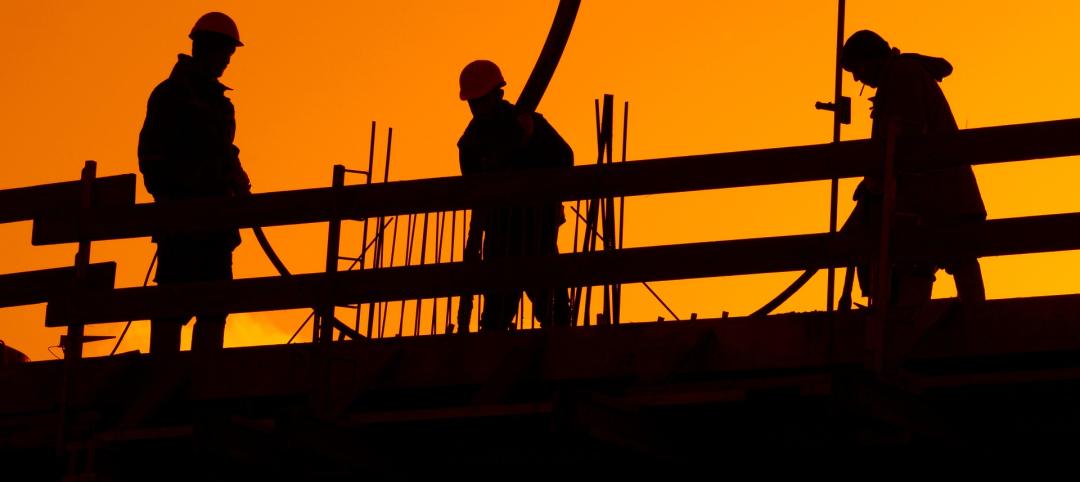Cool pavements—reflective coatings or additives applied to concrete and asphalt—could have an unfortunate byproduct.
New research conducted in Los Angeles’ San Fernando Valley examined the impact of pavements that had been mixed with a reflective additive. The finding: reflected energy from sunlight can make people walking on the pavement significantly hotter.
According to a researcher’s sensors, on a hot, dry day, a pedestrian could feel more than 7 degrees warmer on a “cool pavement,” compared to how he or she would feel on a standard blacktop. The standard dark pavement stores some of the energy and converts it into heat, while the cool pavement reflects more energy.
Studies support the notion that reflective surfaces can reduce the heat island effect by a few degrees in urban areas, but at least in the brightest times of the day, they can make people walking on them feel hotter. Since 2015, Los Angeles has covered about 50 city blocks in reflective coatings and seals, and plans to continue with this initiative.
Related Stories
Codes | Jun 17, 2024
To avoid lawsuits, contractors and designers need to do more than comply with codes
Climate change is making design and construction more challenging and increasing the potential for lawsuits against building teams, according to insurance experts. Building to code is not enough to reduce liability because codes have not kept up with the rapid climate changes that are making extreme weather more common.
Concrete Technology | Jun 17, 2024
MIT researchers are working on a way to use concrete as an electric battery
Researchers at MIT have developed a concrete mixture that can store electrical energy. The researchers say the mixture of water, cement, and carbon black could be used for building foundations and street paving.
Codes and Standards | Jun 17, 2024
Federal government releases national definition of a zero emissions building
The U.S. Department of Energy has released a new national definition of a zero emissions building. The definition is intended to provide industry guidance to support new and existing commercial and residential buildings to move towards zero emissions across the entire building sector, DOE says.
Green | Jun 11, 2024
Tool helps construction and renovation projects with CalGreen compliance
One Click LCA recently launched a new software tool to help building teams comply with Part 11, Title 24, of the California Code of Regulations—CALGreen. The regulation is the nation’s first state-mandated green building code to include embodied carbon emission control as a mandatory component, effective from July 1, 2024.
Urban Planning | Jun 10, 2024
N.Y. governor halts Manhattan traffic congestion pricing plan
New York Gov. Kathy Hochul says she is indefinitely delaying the implementation of congestion pricing in Manhattan just weeks before the plan was to take effect. The controversial plan would have had drivers pay $15 to enter Manhattan south of 60th street.
Lighting | Jun 10, 2024
LEDs were nearly half of the installed base of lighting products in the U.S. in 2020
Federal government research shows a huge leap in the penetration of LEDs in the lighting market from 2010 to 2020. In 2010 and 2015, LED installations represented 1% and 8% of overall lighting inventory, respectively.
Contractors | Jun 7, 2024
First-in-nation law requires contractors to pay prevailing wage for subsidized housing projects in Minnesota
Minnesota recently adopted a first-in-nation law that requires contractors to pay prevailing wage for subsidized housing projects in the state. This action makes Minnesota the first state in the nation to mandate prevailing wages on projects funded by federal Low-Income Housing Tax Credits (LIHTC).
Multifamily Housing | Jun 3, 2024
Grassroots groups becoming a force in housing advocacy
A growing movement of grassroots organizing to support new housing construction is having an impact in city halls across the country. Fed up with high housing costs and the commonly hostile reception to new housing proposals, advocacy groups have sprung up in many communities to attend public meetings to speak in support of developments.
MFPRO+ News | Jun 3, 2024
New York’s office to residential conversion program draws interest from 64 owners
New York City’s Office Conversion Accelerator Program has been contacted by the owners of 64 commercial buildings interested in converting their properties to residential use.
MFPRO+ News | Jun 3, 2024
Seattle mayor wants to scale back energy code to spur more housing construction
Seattle’s mayor recently proposed that the city scale back a scheduled revamping of its building energy code to help boost housing production. The proposal would halt an update to the city’s multifamily and commercial building energy code that is scheduled to take effect later this year.

















